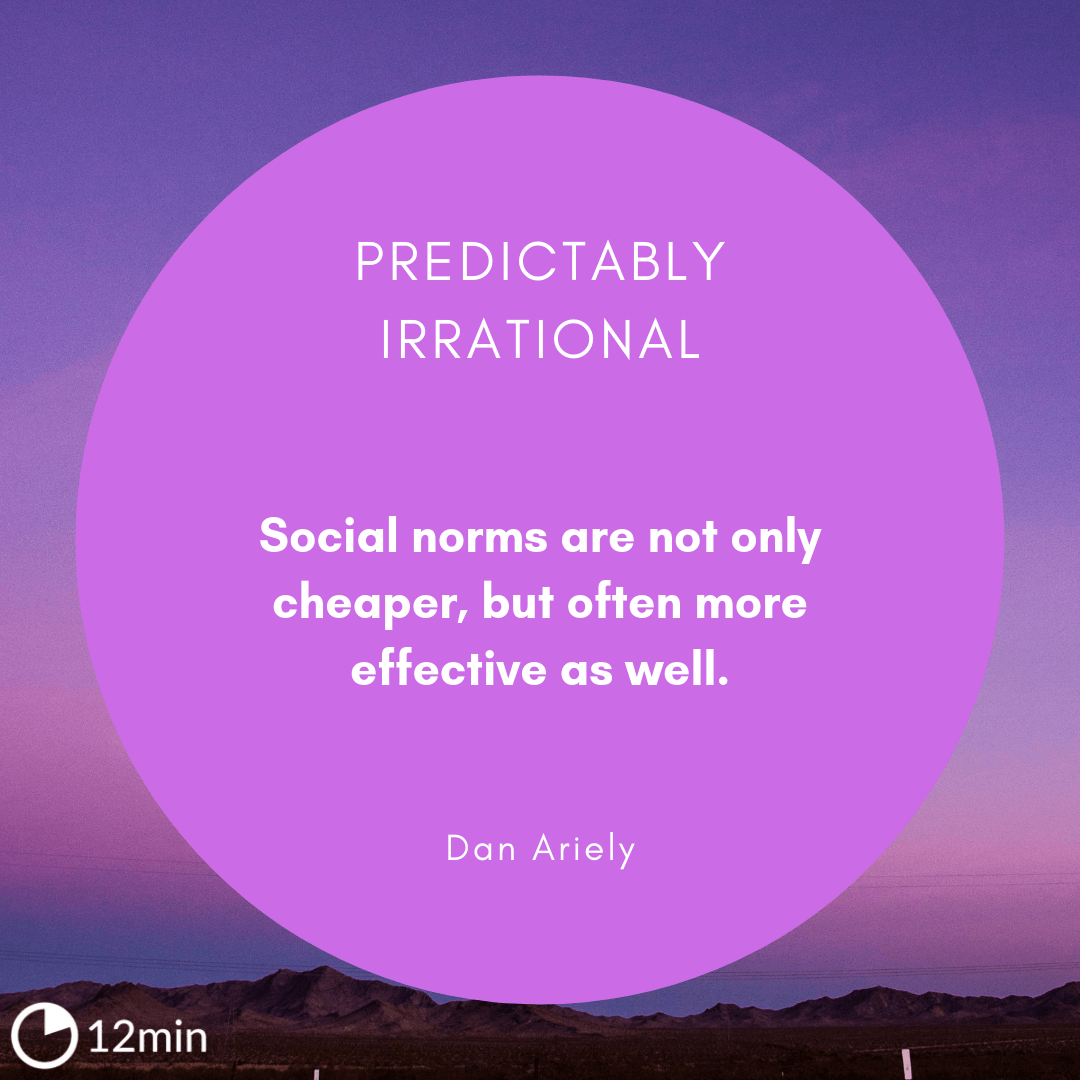
Newspapers regularly ran stories comparing CEO pay schemes implemented in different companies, and financial pundits spent hours on television and reams of print decrying the loss of America’s moral compass in the financial world. Ostensibly, this was in a bid to build public awareness around the outrageous executive compensation schemes that were in place at the time. In 1993, American securities regulators forced publicly trading companies to reveal pay and salary details for all of their top executives for the first time in history. And the only cure is to break the cycle of relativity." - Predictably Irrational, page 21 Irrational Relativity "That’s a lesson we can all learn: the more we have, the more we want.

With oodles of experimental evidence, Ariely shows that not only is human behaviour surprisingly non-rational (irrational), it is predictably irrational, consistent across a variety of situations, and can therefore be predicted and corrected for – if only we knew how. In doing so, the rationale goes, society benefits as a whole. Simply stated, the idea that consumers are able to use reason and logic to make the decisions that are best for them, with the aim of maximizing their personal happiness and satisfaction.

The study of economics relies on a key set of assumptions around the notion of rational consumer choice. Why do we keep stuffing ourselves at the all-you-can buffet even after our stomachs begin groaning after the third helping?įull of startling insights delivered with author Dan Ariely’s characteristic wit, Predictably Irrational is Ariely’s first attempt at chronicling the oddity of human thought and choice, particularly when it comes to their financial and consumptions habits.


Why are we comfortable spending $6 on a cup of coffee now, when only 5 years ago we would be loathe to spend more than $3 on a cup of coffee (corrected for inflation)? Why is it that we often don’t bat an eye at spending an extra $200 on an expensive suit, or $5000 on a house purchase, but can then turn around and spend hours clipping PennySaver coupons to save 25 cents on our next soup purchase?


 0 kommentar(er)
0 kommentar(er)
